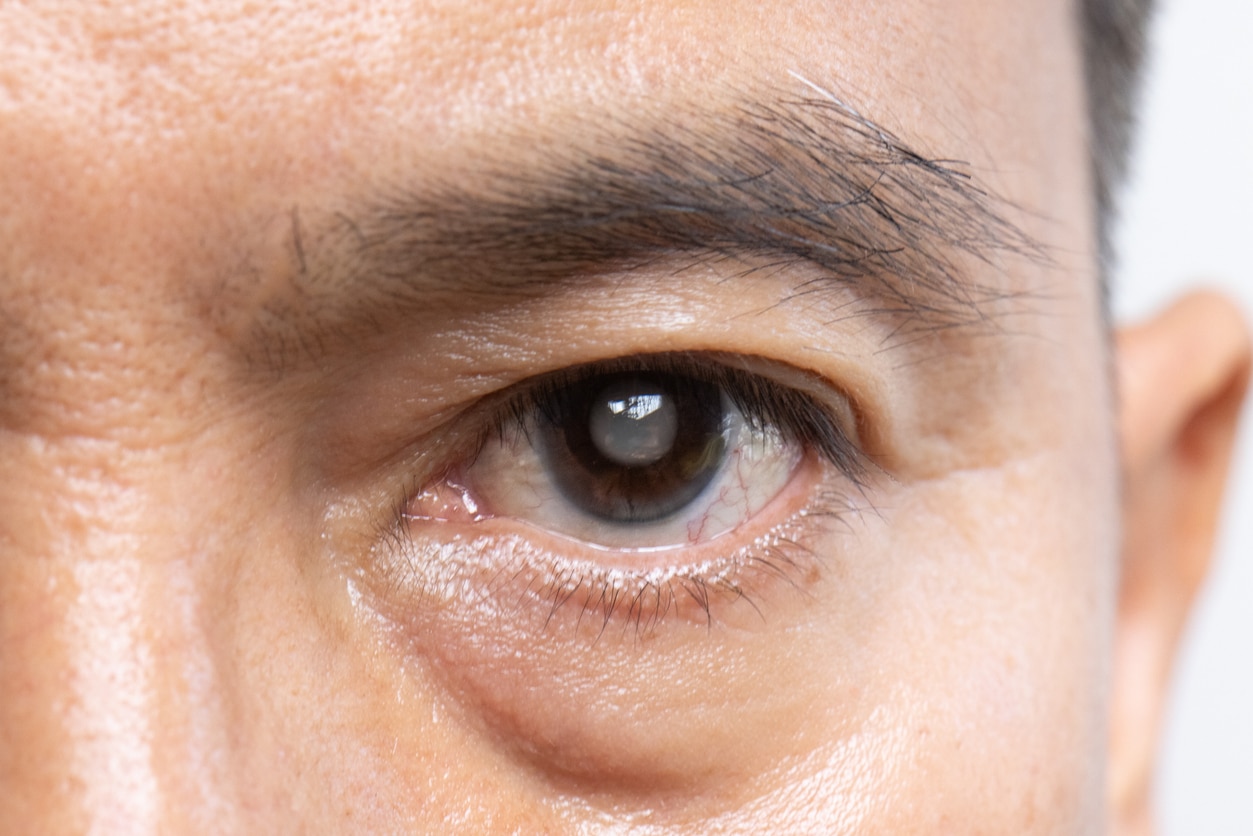Advanced Cataract Treatment Now Available in Provo
Cataracts are cloudy areas that form in the lens of the eye which can impair vision. Cataracts will normally occur in persons 55 and older, but infants and children can also suffer from congenital cataracts. Cataracts usually form slowly over time and may not be noticeable in the beginning. Everybody, especially those over 55, should have yearly eye exams to diagnose and monitor the progression of cataracts.
Symptoms of cataracts can include cloudy or blurry vision, poor night vision, light sensitivity, seeing halos around lights, experiencing frequent changes in vision, and colors appearing faded. If you notice any of these symptoms, it is important to consult with your eye doctor as they may also indicate other eye issues. We tailor our treatment recommendations to each patient’s needs and vision health objectives.

When Do I Need Cataract Surgery?
When methods like prescription glasses fail to clear vision impaired by cataracts, surgery becomes the most effective solution. Most optometrists suggest considering surgery once cataracts begin to impact daily activities like reading or night driving. At our practice, we take a patient-centered approach, carefully assessing individual needs to recommend treatments that support vision health goals.
Waiting to undergo cataract surgery doesn’t typically affect your vision recovery, so it’s important to weigh the benefits and risks with your doctor before making a decision. If you opt to delay surgery, our optometrists may advise periodic check-ups to monitor any changes in your cataracts. The frequency of follow-up exams will vary based on your specific circumstances.
Risk Factors for Cataracts
How Do You Treat Cataracts?
The primary treatment options for cataracts are using glasses to correct vision or cataract surgery. Once cataracts progress to the point where glasses no longer provide functional vision, it may be necessary to surgically remove the cloudy lens from the eye and replace it with a clear artificial lens.
Cataract surgery is a very common and safe procedure. Dr. Lewis and Dr. Smith will help determine if and when cataract surgery would be beneficial based on regular eye exams or specific cataract evaluations. They also provide cataract co-management services to find the best surgeon for your individual case and provide careful follow-up postoperative care after surgery.

Provo’s Cataract FAQs
Over time, the gradual accumulation of protein in the eye’s lens forms a cataract, which can result in blurred vision or blindness. Some of the causes of cataracts include:
- Aging
- Diabetes
- UV exposure
- Smoking
- Eye injury
While every surgery has risks, cataract surgery is a relatively simple procedure that only takes about 7-10 minutes. Our team will do everything possible to help prepare you and create a thorough aftercare plan.
Cataracts physically can’t come back after surgery, as the artificial intraocular lens used during the procedure cannot develop a cataract.
However, some patients may experience cloudiness in the lens capsule after cataract surgery, known as posterior capsular opacification. This can cause symptoms similar to cataracts, such as blurry vision, months or even years after the surgery.
While this is the most common complication following cataract surgery, it only affects a minority of patients. If you experience cloudy or blurry vision post-surgery, consulting with Dr. Lewis or Dr Smith can determine if it is due to posterior capsular opacification.
Request an Appointment
Proactive care is always the best route, but when cataracts begin to affect daily activities such as cooking, writing, and hobbies, it’s time to consider treatment options. If you suspect you have the symptoms of cataracts, schedule an evaluation with Dr. Smith or Dr. Lewis.
We look forward to seeing you and enjoy helping you understand your eye health. Call (801) 373-4550 or request an appointment using the link below.
